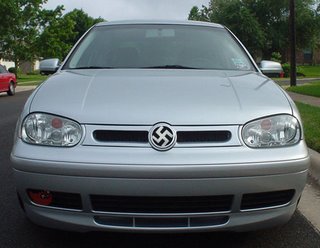
With Franco Belgian relations still at a bit of a low ebb following the Michelin saga, now relations with even larger, scarier, eastern neighbour, Germany have taken a bit of a tumble.
The trouble is that Volkswagen has decided to shut its factory in Vorst, one of Brussels' 19 communes. The future of the factory has long been a matter of speculation but the announcement of the end of the production of the Volkswagen Golf there was nevertheless met with howls of disapproval. The suspicion is that the Germans have played a very dirty game sacrificing the Brussels location simply because it is not in Germany.
This touches a very raw nerve with the Belgians, for they have been here before. In 1997 Renault closed a factory in Vilvoorde, just north of Brussels. It was not that productivity there was lower than in other Renault facilities, rather that, yip you've guessed it, it was not in France. The national trauma was captured in, what I originally thought was the world's least appealing title for a porno, La Vie Sexuelle des Belges Nr 3.
Whatever your position on the sexual life of the Belgians, it seems unlikely that we will be treated to a(nother) sequel. Relations between Germany and Belgium have picked up in recent days. When VW revealed its plans for redundancy pay - up to EUR 150,000 for the most experienced workers - there were queues to take them up on their (kind) offer.
